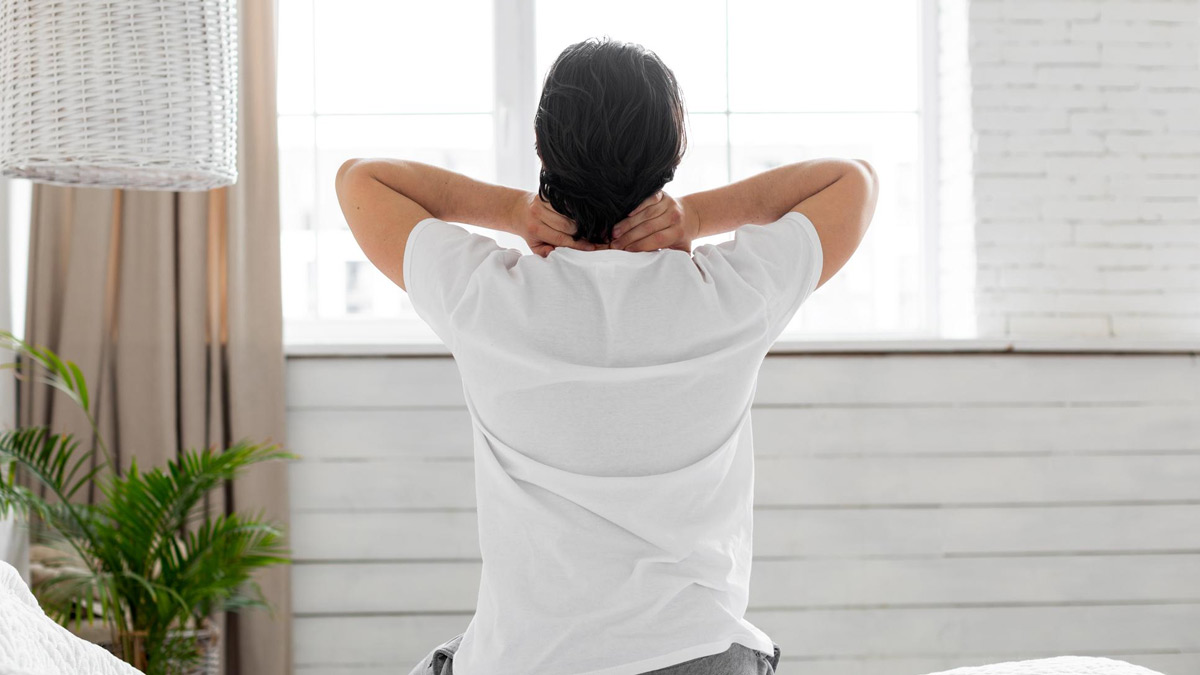
Sleep is vital and has a profound influence on your overall health. It helps to restore and rejuvenates the functioning of your body and mind. It fills you with energy so you can work the next day without fatigue. How you sleep can also have various effects on your body.
Table of Content:-
Effects Of Sleeping Position On Health
Here are three common sleep positions and how they impact your body and health.
Sleeping On Side
As people grow, their preference to sleep on the side increases. Sleeping on your right side can increase acid reflux symptoms or other digestive problems. Whereas, when you sleep on your left side, the stomach acid finds it hard to reflux. This is because, in this case, now your stomach is below your oesophagus.

Also Read: How Do Orthopaedic Mattresses Help Pregnant Women Sleep Well
Sleeping on the side can help during late pregnancy by providing maternal and foetal health benefits, according to a preliminary study. Sleeping on the left side decreases strain on the uterus, improves blood flow, and lessens heartburn. However, you could find it difficult to sleep on your side if you have neck or shoulder discomfort. Side sleeping can help you ease lower back pain and improve spinal alignment.
Sleeping On Stomach

According to a study, a prone sleeping position can benefit people with obstructive sleep apnoea and chronic snoring issues. This is because sleeping on the stomach can help airways to stay open, reducing mild apnoea and snoring. But if you sleep on your stomach for a long period of time it can put a strain on your neck and lower back, which can lead to problems related to the spine. While sleeping on your stomach, most of the weight of your body falls on the middle part, which makes it challenging to make a neutral position of the spine in sleep.
Sleeping On Back
Sleeping on your side or stomach increases the risk factor for glaucoma (an eye condition), according to research published on the National Library of Medicine portal.
Also Read: Read How Poor Sleep Can Affect Your Eyesight
Back sleeping makes it easy to maintain spinal alignment and distribute your weight properly, avoiding any possible neck or back pain.

While sleeping on your stomach helps airways to stay open, sleeping on your back can block it, leading to breathing issues in people with obstructive sleep apnoea. This type of sleep position can also help people with lumbar spine and neck pain. This sleeping position is not advisable for pregnant women and people who have gastrointestinal reflux issues.
Good sleep and health have various factors, and choosing one suitable sleeping position is not ideal. You should choose the position based on how your sleep affects your body and vice versa. Choose a sleep position that provides the most comfort to your body and is not detrimental to your health. Make sure to contact a doctor and seek his advice on sleeping better with an underlying health condition without worsening symptoms.
Image Credits: freepik
Also watch this video
How we keep this article up to date:
We work with experts and keep a close eye on the latest in health and wellness. Whenever there is a new research or helpful information, we update our articles with accurate and useful advice.
Current Version